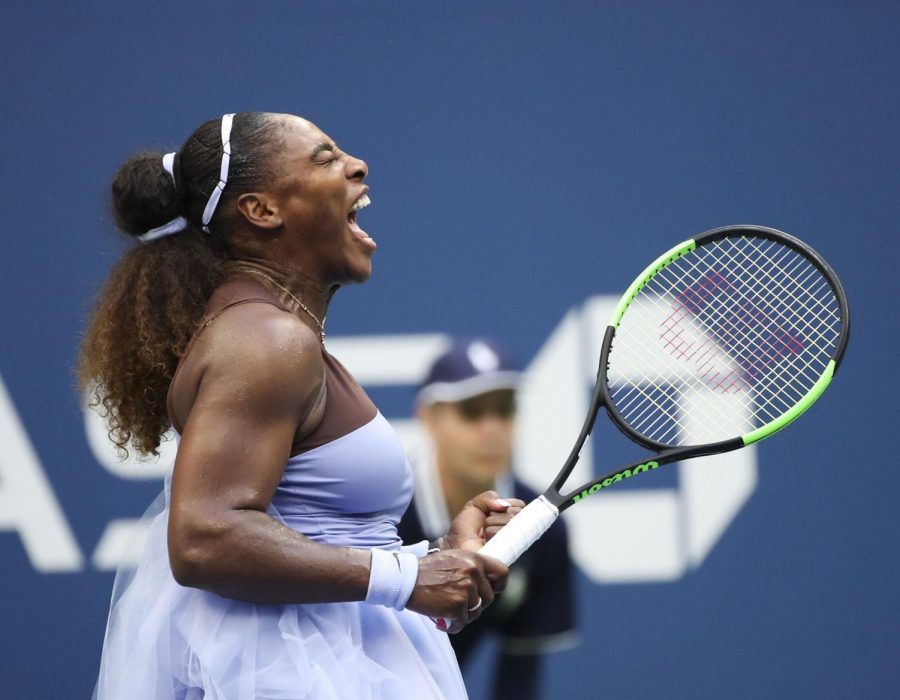William’s fights for social justice
Opinion columnist Brenna Wolfe reacts to the Sept. 8 Serena Williams coaching accusations and what it means in terms of the larger picture.
Sep 13, 2018
Serena Williams is the greatest tennis player alive. She is currently making headlines for arguing with an umpire. Most people don’t follow tennis, which makes this incident look like just another athlete getting angry and getting penalized. However, there is more to this than a simply a tantrum.
On Saturday, Sept. 8, Serena Williams and Naomi Osaka were playing in the 2018 US Open women’s final. At some point during the match, Williams received violations for coaching from the umpire. Tennis players cannot receive any coaching during the match, and any communication between the player and coach is considered coaching. It appeared that William’s coach, Patrick Mouratoglou, was giving coded hand signals to Williams.
William was then cited for a coaching violation, and she became very upset. Williams approaches the umpire and said, “If he gives me a thumbs-up, he is telling me come on. We do not have any code, and I know you don’t know that. And I understand why you may have thought that was coaching. But I don’t cheat to win, I’d rather lose. I’m just letting you know.”
It appears the communication was civil and remained that way.
Williams walked away, and later the umpire started a conversation with her. She continued, “It’s not something I do. I have never cheated. I understand why you thought that; I just wanted you to know. I have never cheated.” The umpire responded positively and nodded his head, and she said, “Thank you so much. Thank you so much!”
Again, the conversation was civil.
Later in the game, Williams smashed her racket, and she received a rare violation and lost a point. When she realized this, she approached the umpire and communicated her belief that the violation should only be a warning. This is when the umpire said again that she received coaching, and Williams got upset again.
“I didn’t get coaching! I didn’t get coaching! I didn’t get coaching! You need to make an announcement that I didn’t get coaching! I don’t cheat, I didn’t get coaching! How can you say that? You owe me an apology! You owe me an apology! I have never cheated in my life! I have a daughter and I stand what’s right for her and I have never cheated! You owe me an apology!”
She walked away.
For Williams, this was about her character. She was worried that her daughter would read articles that her mother was a cheat. It was more than a penalization. Williams continued to repeat later in the match, “For you to attack my character, this is wrong. You owe an apologize. You stole a point from me, you’re a thief!”
He responded with a game penalty for verbal abuse. He gave Osaka the entire game. This is unprecedented.
After the game penalty, Williams was then upset that she was being treating differently because she is a woman. She says that male tennis players have said and done a lot worse and did not receive harsh penalties.
This is more than an angry athlete. This is about needing to apply the rules fairly to women, but specifically to black women. She was not a sore loser. This was about Williams’ character being threatened and for the treatment of black women everywhere.
Thank you, Serena Williams, for your sacrifice and for continuing to right for equality and social justice.

















